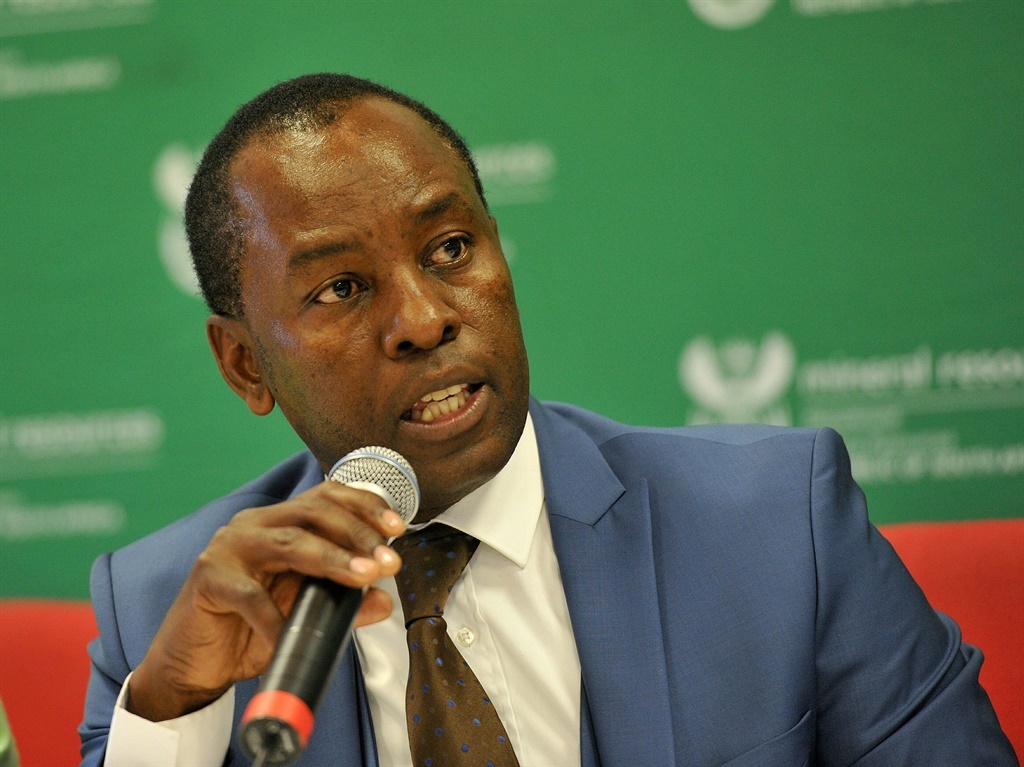


Mosebenzi Zwane. (Gallo Images)
- The Zondo commission heard how former Free State Human Settlements MEC Mosebenzi Zwane instructed a department head to appoint contractors allegedly close to him to be part of R1 billion housing scheme.
- This week, the commission shifted its focus to the “irregular” and “fraudulent” housing project.
- The commission heard that millions of rands were stolen from the project.
Former Free State Human Settlements MEC Mosebenzi Zwane allegedly instructed a then department boss to appoint 106 contractors in the billion rand housing scheme that led to the stealing of close to R600 million.
In 2010 and 2011, Free State people were promised houses, however, many of those houses were never built, leaving some people’s hopes dashed.
The state capture inquiry has heard that the department spent over R500 million before any work could be done.
The evidence revealed that the housing department made payments to contractors and suppliers without any written agreement or any proof that houses had been built.
It also heard that Zwane selected who should be part of the project. And at the end, the department lost over R400 million.
The money was spent after the national department threatened to transfer some of the Free State housing budget to “better preforming provinces”.
Free State had underspent the money allocated to them. However, a scheme was quickly devised for the money to be spent which led to more than 100 contractors getting an advance payment before anything could be done.
There was no procurement process in respect of the contractors and the parties who supplied materials.
‘Completely irregular’
The entire scheme was “completely irregular”, Deputy Chief Justice Raymond Zondo, the commission’s chairperson, was told.
ANALYSIS | The billion rand housing scheme that paved the way for state capture to come
On Tuesday, the commission continued to hear evidence from Nthimose Mokhesi, head of human settlements in the province.
Mokhesi was not part of the department at the time and he only came onto the scene later. He filed an affidavit aimed at recouping some of the money his department had lost, saying the whole scheme was “fraudulent”.
During proceedings, evidence leader, advocate Paul Pretorius, read out an affidavit from then department head Mpho Mokoena, which stated that towards the end of 2010, Zwane approached him with a list of about 106 contractors and instructed him to appoint them.
Mokoena said the first six were contractors that had never been used by the department previously.
He said he remembered asking Zwane why they were allocating houses to contractors they did not know.
“The MEC was, however, adamant that these were the contractors we should use,” he said in his affidavit.
He also added that in relation to the six contractors, he recalled the names of three of them.
He claimed the contractors were close to Zwane because he had personally called him to expedite the processing of their payments.
Mokoena said the department allocated about 500 to 600 units to the first six contractors that appeared on the MEC’s list.
At that stage, the RDP houses were constructed for an amount of about R55 000, he said.
When Pretorius asked Mokhesi, who was on the stand, if any investigations were conducted in this regard, Mokhesi said he did not investigate this. He said this was a meeting between two people.
Mokhesi also told Zondo those involved did not “come out clear” as to who selected the contractors and how they were selected.
ALSO READ | Free State asbestos project a flawed process with no evidence of competitive bidding, Zondo commission hears
When Zondo asked Mokhesi if he asked Mokoena about the contractors, Mokhesi said he did not.
Zondo asked:
Why didn’t you write to him? Why didn’t you phone him and say ‘Mr Mokoena you were the HOD when this mess happened, who selected these people?’ Why did you limit your inquiries to junior officials when you knew who was HOD at the time?
Mokhesi did not have a clear answer – he said he was not the only person investigating the matter. He said the Special Investigating Unit was also on top of the matter.
He also said when he arrived at the department, he was told by the SIU that officials were not cooperating with investigations.
While the commission heard that there was a Special Investigating Unit report, a civil court bid and disciplinary inquiry, those who gave the instructions were not charged.
Pretorius also raised the issue of a number of junior officials who were dismissed even after they said they were merely following instructions.
He said there was a disciplinary inquiry conducted against the junior officials.
He also said there was a thorough investigation in regard to certain people, but it seemed in regard to others there was no investigation at all and the inference that was drawn was that certain people were being protected.
However, Mokhesi denied knowing if anyone was being protected.

